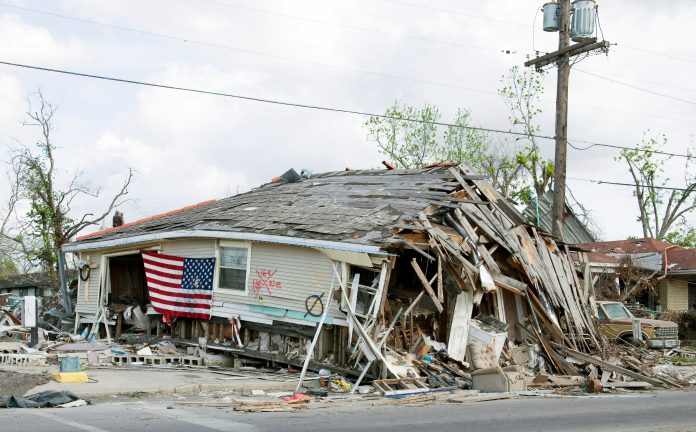Housing is among the most basic but crucial human needs. Yet, the shift toward sustainable living has kindled a new trajectory in home building.
More homeowners seek energy-efficient homes to help reduce their environmental impact while maintaining comfort. With this, builders and brands have emerged with innovative green materials, products, technology and practices.
These companies are an example of what the future of residential construction could and should look like.
The Need for Energy-Efficiency in Home Building
Home building is not generally recognized as ecologically friendly. According to the International Energy Administration, the residential sector accounted for 20.96% of total energy consumption in 2022, compared to 8.76% for non-residential buildings. Much of this comprises operations, particularly heat and electricity generation.
In another report by RMI, researchers determined new home construction produces 50 million tons of carbon dioxide (CO2) emissions annually — the same amount as 138 natural gas-powered plants and yearly emissions from places like Norway and Peru.
Common materials used in home building include concrete, steel, brick, wood, glass and plastics, among other elements, all of which produce greenhouse gases. For example, cement for concrete generates 7% of global CO2 emissions, while steel produces 2.3 tons of carbon for each ton of metal. Aluminum also contributes 3% of direct industrial emissions.
The rising demand for housing will continue to increase greenhouse gases in the construction and residential sectors unless industry enterprises adopt sustainable solutions. Decreasing the industry’s carbon footprint necessitates awareness of the emissions created during materials extraction, manufacturing and building processes.
Fortunately, several brands have jumped headfirst into the green market, pivoting their offerings and practices for greater energy efficiency. As such, they encourage more builders and manufacturers to do the same.
6 Brands Transforming Green Home Construction
Today’s construction builders and brands are reshaping the sector’s sustainability. Whether through top-of-the-line green products, training or other means, the following six businesses are most focused on energy efficiency at every stage of home building.
1. Dvele
Prefabricated or modular construction has proved its worth in ensuring rapid, durable housing and improved environmental outcomes. According to a recent report by the Modular Building Association, one project was completed seven months early and produced 43% fewer emissions than standard construction.
Dvele is a leader in prefab home building. The firm utilizes sustainable materials and smart features capable of lasting 100 years, such as advanced air and water filtration, continuous air circulation, and soundproof designs. The homes are also self-operational, generating and storing energy for later use.
2. Knauf Insulation
Knauf Insulation delivers a high-performance Earthwool product line to reduce household noise and improve energy efficiency. Earthwool comprises 80% recycled glass and a bio-based binder — no formaldehyde or other toxic chemicals are present. It has also attained GreenTag Level A certification and a DECLARE Label, indicating it meets the International Living Future Institute’s Red List standards for 100% ingredient transparency in building materials.
Insulating homes is essential for ensuring adequate indoor temperature. For instance, attics can reach 150˚ Fahrenheit in the summer without proper ventilation. However, insulation can slow heat transfer from the roof, reducing how hard the HVAC system must operate to cool the house. It also prevents moisture buildup in the walls.
3. Superior Walls
Superior Walls precasts concrete foundation walls, delivering an insulated and enduring base for new home construction. The insulated concrete protects the house from thermal loss and gain during the cold and warm seasons, improving energy efficiency.
The company also helps homeowners build for an Energy Star label, meeting stringent guidelines for a high energy efficiency rating. Experts say Energy Star-labeled homes are 20%-30% more energy efficient than conventionally-constructed houses.
4. Kingspan
Kingspan is a global leader in sustainable residential construction solutions, with operations in 80 countries at 200 manufacturing plants, including the U.S. Its passionate vision is to reduce CO2, enhance at-home living and create a circular built environment. In 2023, Kingspan partnered with sustainability consultant 3Keel to analyze historical building emissions and retrofitting trends to identify gaps and ensure alignment with the Paris Agreement.
Under its Passionate Program, Kingspan began upcycling plastic water bottles as a critical ingredient in its insulation products in Modesto, California. This initiative aims to upcycle 1 billion water bottles annually and provide 9%-12% of recycled materials to the brand’s insulation foam.
5. Carrier Global
The century-old air conditioning manufacturer Carrier Global has embraced sustainable technologies in recent years. It even acquired Germany’s Viessmann Climate Solutions — a producer of renewable energy solutions, smart home innovations and home battery storage — in 2023.
Carrier is looking to Viessmann’s talented team to build its heat pump portfolio. It currently has 10 heat pump models in the U.S. market — now it’s delivering training and education programs and advertising support to its 2,100 authorized dealers. The initiative will help dealers better inform customers of the benefits of heat pumps for residential energy efficiency.
6. Vulcan Materials Company
Vulcan Materials Company is critical in infrastructure development, producing raw materials — stone, sand and gravel — as construction aggregates. It also develops aggregate concrete and asphalt across several U.S. plants.
It’s not uncommon for Vulcan to recycle aggregate materials into its products, which reduces the need to extract more resources. With several facilities operational nationwide, local materials and supplies don’t have to travel far, reducing transportation emissions.
The enterprise made remarkable progress in its sustainability goals in 2023. By integrating energy-efficient technologies, it saw a 20%-50% decline in fuel consumption per mobile equipment engine — a 35% decrease in nitrogen oxide emissions and a 41% reduction in diesel pollutants
Last year, Vulcan’s subsidiary Central Concrete was able to sequester CO2 permanently in concrete with reclaimed water technology. The process equated to 66 pounds of CO2 — the same as car emissions while driving 75 miles per hour.
Green Construction Spearheads Residential Energy Efficiency
The residential construction industry has plenty of opportunities to continue creating positive changes with reduced emissions. The future looks bright for the home building sector as more builders, brands and homeowners adopt sustainable solutions.










